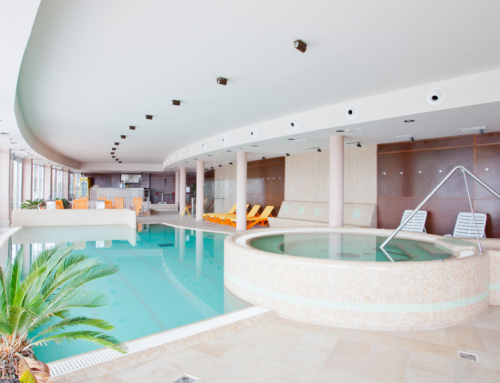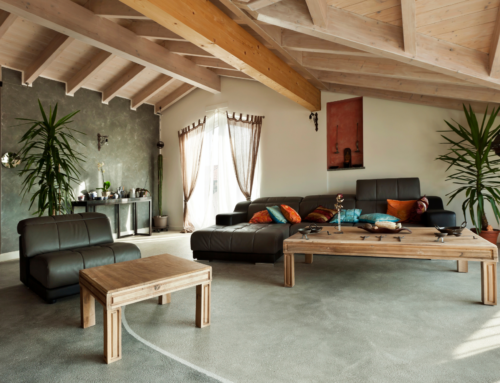Epoxy flooring is a hugely popular choice for garage floors. But it’s certainly not the only option. You might be considering tiles (modular), rubber or polyaspartic, all of which are widely used.
But – and this is the big question – how do they compare to epoxy resin?
Let’s put them to the test….
The big garage floor league table – from worst to best…
Before we begin to compare the pros and cons of different floor types, let’s define what we need from a garage floor. From a simple home garage to a car showroom or professional mechanic workspace, anywhere that has vehicular traffic requires the following:
- It needs to be tough enough to withstand heavy traffic.
- Be easy to keep clean.
- Must withstand oils and chemical spills.
- Be strong enough to support heavy weights centred on a single point, such as vehicle. jack stands.
You’re also going to want the surface to have excellent longevity, look good and be pretty easy to install.
With all that in mind, let’s start the comparisons.
Ease of installation
Most garage floors are concrete with your choice of surface installed on top.
Both rubber and tiles are simply laid over the concrete (or clicked into position, in the case of modular options). You might need to cut the outer edges of the rubber or tiles to fit snugly into the space.
Epoxy resin and polyaspartic are both poured into place in a liquid form to create a seamless surface. This cures over the next 24 hours or so, after which it’s solid enough to walk on.
So, which is easier? For a DIY project that can be completed in a few hours, rubber or tiles may well be the way to go. However, any competent handy person can complete an epoxy or polyaspartic project over a weekend – although many people employ an expert contractor to do the job.
Longevity
This one’s easy… Epoxy resin outshines all the other options by years – if not decades (although polyaspartic comes a close second). If you look after it, you can reasonably expect an epoxy resin floor to last 20 or even 30 years, even with the toughest of garage use.
Modular flooring longevity is wholly dependent on the quality of the tiles you choose, as is rubber. While you can expect them to last a good few years, the biggest issue is that neither creates a completely sealed surface. This means that the concrete below is subject to dampness and liquids oozing between the gaps. Over time, this will degrade the base, meaning the flooring will have to be taken up and the concrete resurfaced.
Care and maintenance
Both epoxy and polyaspartic are very easy to keep clean. A warm water mop is usually all that’s needed. Both are resistant to most chemicals and abrasion, making them highly suitable for the challenges of a garage floor. However, polyaspartic can’t match the qualities of epoxy when it comes to weathering corrosive products.
Rubber and tiles can also be swept and mopped. However, they’re likely to become stained by spillages and will get damaged by chemicals, solvents and harsh cleaning fluids.
Affordability
The initial cost of tiles and rubber garage floors can be cheaper than epoxy or polyaspartic flooring. For a home DIY garage project where you want a cheap, instant makeover, then this makes them a viable option. Naturally, the higher the quality of the product you choose, the more expensive it will be.
While epoxy and polyaspartic might have a higher installation cost, when you look at the year-on-year factor and the incredible longevity they offer, the overall price is considerably less. This is the very reason that savvy business owners choose these over tiles or rubber.
Other practicalities
Additional aspects that epoxy resin offers that the other options don’t include:
- Epoxy flooring can be combined with a non-slip coating to make it safe to walk on, even when wet.
- Epoxy comes in a virtually infinite range of colours.
- It can be tailored to include any required design.
- It can be installed in damp environments.
- It’s virtually immune to damage (although polyaspartic is pretty robust as well)
Conclusion: Epoxy flooring vs. competitors – which is tough enough for the job?
While all are good garage flooring choices, if you’re looking for longevity, bespoke design, the lowest overall cost (when you consider how long the surface will last, not the initial installation price) and the practicalities of maintenance and care, epoxy is the clear winner.
At Shimicoat, our years of industry experience means that not only do we offer the best epoxy resin range in the business, but we’ve tackled the initial cost aspect too. Our complete kits provide everything you need for an installation at incredible value for money.
We also offer free advice based on our decades of industry expertise. Check out our Shimi Uni where virtually all your FAQs are answered – and for anything else, send us an email or pick up the phone. Or, if you’re ready to purchase, get your tailored DIY quote today.





